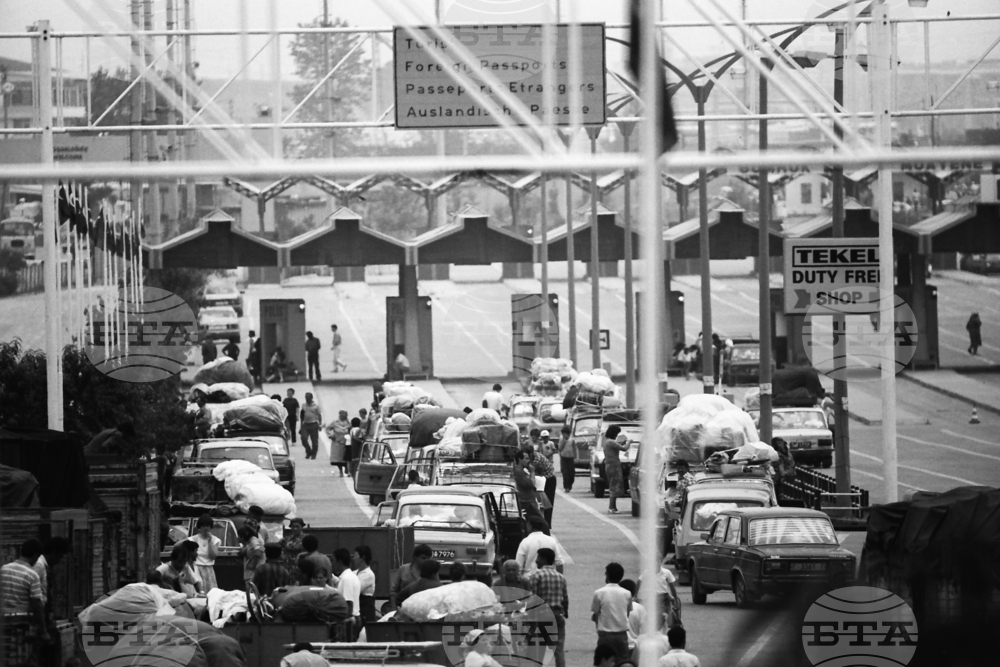site.btaJune 19, 1984: Bulgarian Communist Party Starts "Revival Process" against Muslim Minorities


On June 19, 1984, Bulgarian Communist Party's (BCP) Politburo adopted a decision "On Further Consolidation and Enlistment of Bulgarian Turks for the Cause of Socialism, for BCP Policy." The act started the so-called "Revival Process" which aimed to assimilate country's Muslim minority by forcing 720,000 - 820,000 ethnic Turks and 180,000-250,000 Muslim Roma to adopt Slavic names.
As a result, over 350,000 people left their homes in Bulgaria to emigrate to Turkiye.
Brief History of Turkish and Muslim Communities in Socialist Bulgaria
In the 1948, after Bulgaria’s transition to a socialist regime, BCP leader Georgi Dimitrov and Politburo issued a decision for the forced displacement of 250,000 Turkish and Muslim people from South Bulgaria, reads a 2003 Bulgarian report under the Framework Convention for the Protection of National Minorities (FCNM).
The situation briefly improved in the 1950’s when the government decided to integrate Turkish minorities into the educational system by providing special scholarships for them.
In 1956, with the new cabinet of BCP's first secretary Todor Zhivkov, the rights of Muslim and Turkish minorities in Bulgaria became very limited. He proclaimed his thesis about “the ethnically homogeneous Bulgarian socialist nation,” mentions the FCNM report.
The first stage of name changing “Revival Process” started in the early 70’s in several villages in Central Rhodope region in South Bulgaria.
In 1981, the process spread to a large part of Muslim Roma people in Bulgaria.
The 1984 Politburo decision started the most radical period of the “Revival Process’ when 850,000 Muslims had their names changed in their legal documents. The process involved the army and the militia. It was accompanied by evictions, beatings, killings. Hundreds were imprisoned in the Belene concentration camp. The renaming was coupled with the destruction of Muslim cemeteries, hospital records of patients with Turkish names, and a strict ban on speaking Turkish in public, the 2003 report states. This unprecedented exodus, called “the Big Excursion” in the newspeak of the time, was in fact the largest ethnic cleansing in post-WW II Europe.
In 1989, after Bulgaria loosened its border control, 362,000 people emigrated to Turkiye.
With the fall of socialism, 154,000 returned to their Bulgarian homes.
Muslim and Turkish Minorities after 1989
In December 1989, the “Revival Process” formally ended with a decision of BCP’s Central Committee to restore the names of Muslim and Turkish people in Bulgaria, according to an article by Petya Pavlova for istorianasveta.eu.
In March 1990, Parliament passed legislation rescinding the assimilation of Muslim minorities. Within a year, 600,000 people had reverted to their original names.
In 1991, Zhivkov and another four top party functionaries were charged in a criminal case as masterminds of the process, but none were tried and convicted.
In 1999, Bulgaria adopted the Framework Convention for the Protection of National Minorities which monitors the rights, and treatment of minorities in Europe.
In 2018, the Ministry of Education introduced a new curriculum for secondary school history which includes the repressive policies of the socialist regime, including the “Revival Process”, after years of public and institutional debate, Deutsche Welle Bulgaria reported.
/MR/
Additional
news.modal.image.header
news.modal.image.text
news.modal.download.header
news.modal.download.text
news.modal.header
news.modal.text




